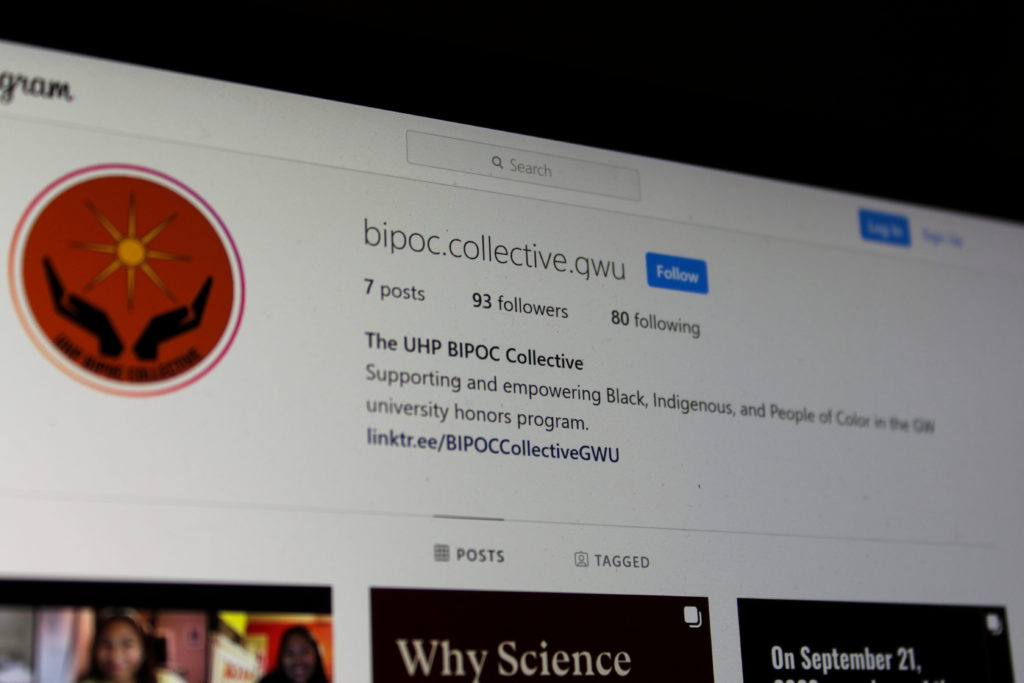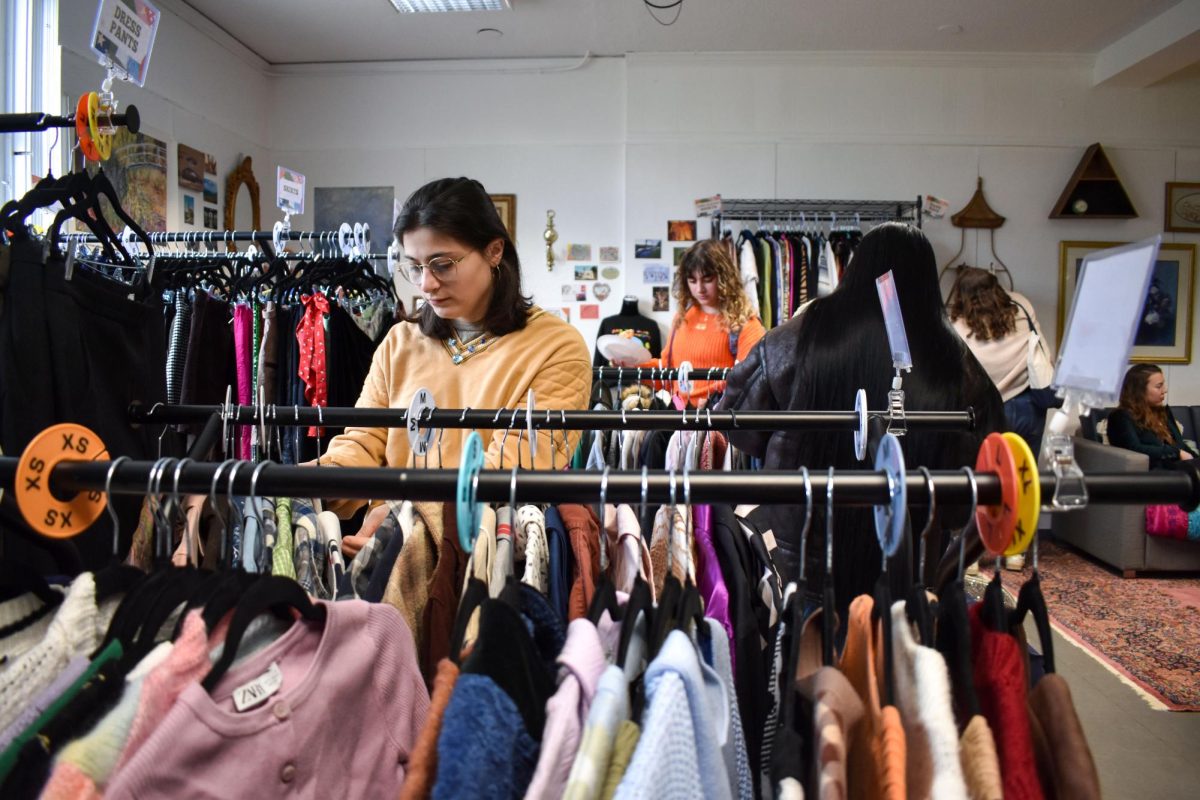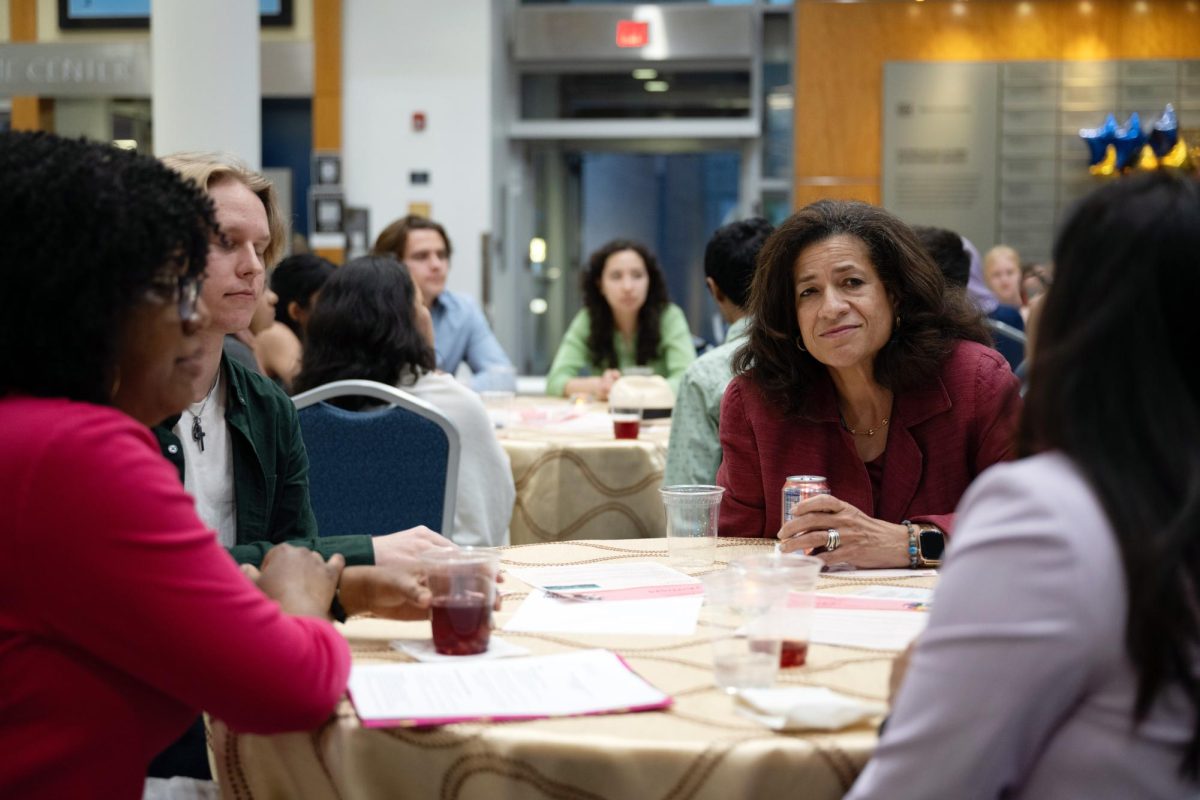A group of students of color is working to create an inclusive and diverse space that they say has been “lacking” in the University Honors Program.
Seven students launched the UHP Black, Indigenous People of Color Collective earlier this month to build a closer community with each other and support students’ success in the honors program, advocating for policies like diversifying peer mentoring and programming. The members of the collective said the group will spend the semester pushing administrators in the program to enact their proposed inclusion policies and create a safe space for BIPOC students.
Junior Ebunoluwa Akinbode, one of the two students who originated the idea for the group, said a group of students sent a letter to Bethany Cobb Kung, the UHP director, in June following nationwide protests against racial inequality. Akinbode said student leaders demanded the UHP require unconscious bias training for students and core faculty.
“Your mission is to organize committed scholars from diverse backgrounds to engage in questions of humanity and apply it to the complex world around us,” the letter states. “The program’s current environment in which students of color feel alienated, ignored and frustrated in spaces of your own creation make it impossible to fulfill this purpose.”
The UHP released a statement in June announcing the formation of a diversity and inclusion committee and the starting of other policies like requiring bias training for all students, staff and faculty in the program.
But Akinbode said some students who joined the committee resigned after a meeting with Associate Provost for Special Programs and the Mount Vernon Academic Experience Elizabeth Chacko and Kung. The collective wrote in an Instagram post that members who resigned said officials demonstrated “no understanding” of the work students put into the committee and “blamed” students for the program’s lack of diversity.
“What we found was that in the D&I committee, professors and administrators and staff would say that they agree with us, but then when it came down to discussing different solutions, it was very clear that they not only disagreed but also fundamentally didn’t understand what it is we were advocating for,” Akinbode said. “Those conversations would dissolve into disagreements that were very unproductive so the committee wasn’t really productive, like all throughout the summer.”
Chacko said she formed a Vern student advisory council last year to advise her on various issues, like creating a Multicultural Student Services Center space on the campus. She said students, faculty and staff should work “closely and collaboratively” to make GW and the programs within it more inclusive.
“Over the last year, I have had great experiences working with BIPOC and other students in the Mount Vernon Scholars Program,” Chacko said in an email.
She said she met with members of the collective while they were serving as student representatives on the diversity and inclusion committee “in a listening capacity.” She said she participated in a second meeting to address some “issues” that the students raised, but she didn’t specify which issues were brought up.
Chacko said the UHP has increased its student diversity with White students making up about 45 percent of freshmen in the program this fall compared to between 69 and 73 percent from 2017 to 2019. She said Asian students made up about 23 percent of this year’s incoming UHP class while last year they comprised 16 percent, and Black student percentages more than doubled between 2019 and 2020.
“As I informed the students, UHP faculty in collaboration with admissions have paid careful attention to diversifying the incoming class and over the last couple of years have admitted a larger number of students of color, but they do not have control over which students among those admitted decide to come to GWU,” Chacko said. “That decision is made by the students and their families.”
Sophomore Fryda Cortes, a member of the collective, said the UHP Origins course readings are “extremely” Eurocentric and include racist undertones and ideas by the authors. She said updated reading lists included more women authors, but the lists still don’t feature enough voices from BIPOC authors.
She said the collective will make a list of its own reading content and encourage students of color to fill out a UHP student testimony form to advocate for themselves and report bias incidents. She said the collective will engage with administrators in offices outside of the UHP, and members have spoken with Jordan West, the director of University diversity and inclusion programs, about reporting racist incidents.
“We were expected to just brush past it or if it was brought up students were met with glares from other classmates and even professors themselves being like, ‘Oh, well, things are different now,’” Cortes said.
Junior Nicolas Rios, a member of the collective, said the group has about 15 members and will continue to promote itself on social media to attract students interested in joining. He said the collective is open for all students interested in addressing issues facing UHP BIPOC students and will host meetings every second and fourth Thursday of the month.
“We are trying to pick up the slack that we see the UHP has, and we are trying to take on this very big workload,” Rios said. “It’s a very ambitious goal, but at the same time when no one else is doing it, there is not much of a choice.”







